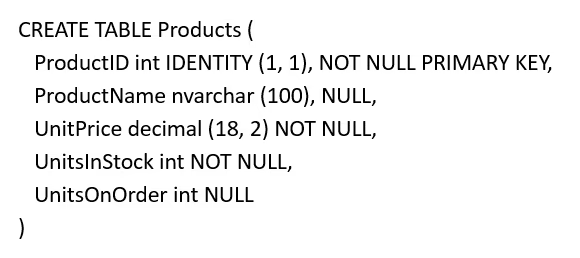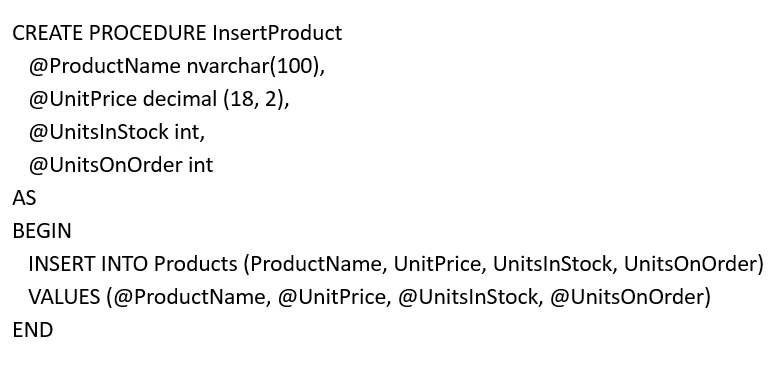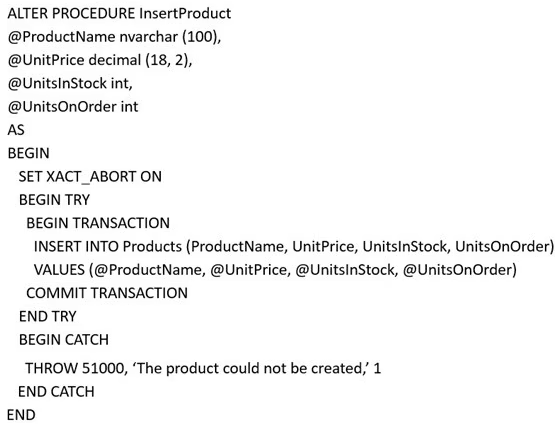Note: This question is part of a series of questions that present the same scenario. Each question in the series contains a unique solution that might meet the stated goals. Some question sets might have more than one correct solution, while others might not have a correct solution.
After you answer a question in this section. You will NOT be able to return to it. As a result, these questions will not appear in the review screen.
You create a table named Products by running the following Transact-SQL statement:

You have the following stored procedure:

You need to modify the stored procedure to meet the following new requirements:
✑ Insert product records as a single unit of work.
✑ Return error number 51000 when a product fails to insert into the database.
✑ If a product record insert operation fails, the product information must not be permanently written to the database.
Solution: You run the following Transact-SQL statement:

Does this meet the goal?